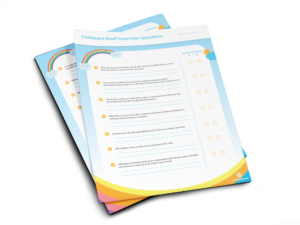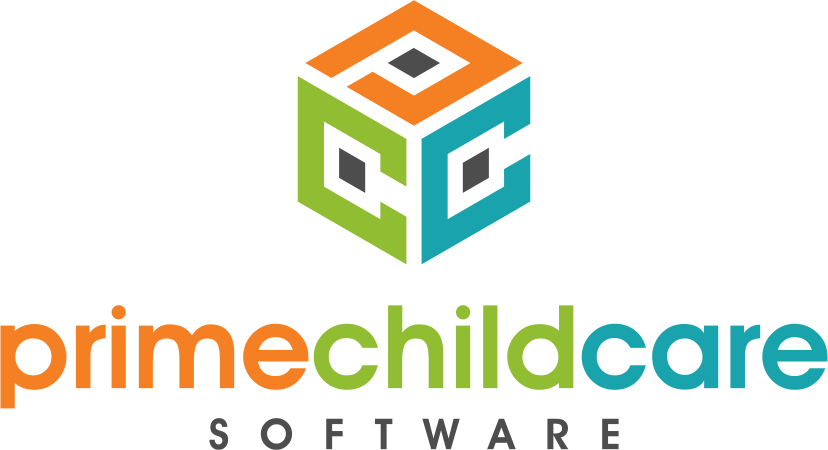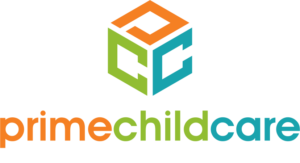Running a successful facility requires consistent and open lines of communication with parents. Let’s face it: parental involvement is a crucial component of a wholesome and holistic child care ecosystem. But, what happens when they ignore your attempts at communication? Will a dedicated daycare mobile app solve the problem?
According to research, the average American receives 126 important emails a day. Yet, they only send out around 34 emails during the span of 24 hours. That means they’re probably ignoring over 90 emails sitting in their inboxes. In traditional settings, child care facilities rely on strategies like newsletters, emails, and websites to reach parents. But, do they actually work?
The truth is: not really. Parents already get too many emails, text messages, and newsletters daily. And, despite using personalized subject lines and engaging CTAs (calls-to-action), you find it harder than ever to reach parents. In addition, consumers get over 6 billion “junk” emails each day. Even in professional settings, the majority of office workers completely ignore work emails. Plus, about 50% of them believe that receiving fewer emails would increase their overall satisfaction in life.
That said, what if there was a way to create a direct channel to parents that built your brand, increased accessibility to your programs, promoted better satisfaction with your services, and helped generate higher revenues?
Here are three reasons your child care facility needs a mobile app and why they may be a better investment than previously thought.
1. Mobile Apps Let You Communicate With Parents on Their Terms
The average American spends around 5.4 hours a day on a mobile device. Do you know what users do during that entire time? They’re generally using apps. That’s right: around 90% of mobile time is spent on applications — not checking emails, replying to texts, or making phone calls. In child care, communicating with parents and fostering parental engagement can be a challenge. When you aren’t leveraging communication channels that parents are familiar with, breeding a culture of open communication can be next to impossible.
Millennials probably make up the majority of your clientele. Around 50% of your children likely have Millennial parents (and the numbers are growing yearly). In addition, around 70% of those mothers and fathers work outside the home. To reach them, you must meet them on their own terms.
To put it simply, Millennials don’t check their emails regularly. In fact, browsing the Internet and checking social media networks are the top two activities on smartphones. In other words, people prefer to check Facebook and Instagram messages than emails. The latter falls to sixth place in terms of how Millennials use their cellphones.
Yet, although Millennials tend to ignore emails, phone calls, and texts, they don’t necessarily deserve the “anxious generation” label. In fact, Millennials probably communicate more than any other age group — they just communicate differently.
In all, 1 billion Facebook messages are sent per day, and 500 million tweets are created. Also, the average person has over 80 apps installed on their phone. If you want to reach parents in today’s ever-evolving market landscape, you need to rethink your strategy. A dedicated daycare mobile app may be the answer.
2. Mobile Apps Can Be Part of Your Daycare’s Branding Strategy
There’s a reason 89% of marketers say that brand awareness is their primary goal. Your brand is the single most valuable thing your business has to offer. Unfortunately, only 60% of businesses think their brand is well aligned for future success. As a child care provider, creating a thoughtful, holistic, and relevant brand is the single best way to capture the attention of new parents.
There are over 850,000 daycare operations in the United States alone. If you want to square up against your toughest competitors, you need to connect with parents on a deeper level than fragmented digital ads on Facebook. Fortunately, creating your own mobile app can help you drive your brand deeper into the consciousness of all those exhausted parents in your area.
Apps also help you build instantaneous and direct relationships with parents through hyper-accessible interfaces. They provide two-faceted benefits. First, mobile apps help you provide amazing services to parents that, in turn, breed trust and loyalty. Second, they also help you occupy an important place in their minds. You’ll have a prominent place on their phones, which allows them to connect with your brand in ways that websites, ads, and marketing campaigns can never accomplish.
3. Mobile App Data Can Be Used to Gain Key Insights and Increase Student Retention Rates
The benefits of mobile apps aren’t merely front-facing in nature. Sure, an app offers massive value to parents. But, it can also transform your back-office, marketing, and sales pipeline. For starters, apps give you the ability to measure reactions to announcements, acquire critical user data, and analyze parent information. This can help you create smarter operational frameworks.
People spend more time on mobile apps than websites. They interact and engage with apps with more purpose and interest. This makes mobile apps exceptionally valuable for data acquisition. For example, what activities do parents like? Which ones do they dislike? What types of meal plans do they look for — gluten-free, protein-rich, veggie-friendly, or something else? Which parents are viewing daily reports? And, which ones aren’t?
All of this data helps you understand parents better, which you can use to create actionable strategies to increase satisfaction with your services.
But, Wait! Isn’t a Dedicated Daycare Mobile App Expensive?
If utilizing a dedicated daycare mobile app sounds like a pipe dream, we understand. Many providers think that only large childcare facilities can afford such an app — not smaller facilities in local communities. However, much has changed within the last five years. Today, developing a mobile app doesn’t have to lead to a budget shortfall. In fact, it may be quite affordable.
Typically, smaller childcare facilities rely on mobile apps that are integrated with their childcare software. This provides a more holistic, connected experience that allows you to share data between the core technologies that drive your facility.
Often, these apps are built on common frameworks. So, you can quickly get a personalized, hyper-branded application built without significant investments or headaches. In addition, a branded daycare mobile app can increase brand recognition and decrease student churn.
Is Your Facility Ready for a Daycare Mobile App That Can Transform Your Business?
Research tells us that most people use apps on-the-go. In fact, many rely on apps to make travel, shopping, and dining decisions. According to a travel survey, 45% of consumers get frustrated when they can’t access travel apps on their mobile devices 24/7. Meanwhile, more than 50% of travelers like to add incidentals to their flight bookings on-the-go.
Essentially, people want data at their fingertips at the time of their choosing. If you’re looking for a daycare mobile app to transform parental engagement and take your branding to the next level, read about the successes Buccleuch Montessori and The Boys and Girls Club of Delaware have achieved. Then, when you’re ready to take the next step, contact us. Let’s talk about how we can help your daycare center realize an incredible future with the right mobile app technology.
Recent Articles from Prime:

Monitoring Liability-Related Expenses in Light of COVID-19
Keeping track of liability-related expenses is critical to maintaining business viability. Learn why you should monitor these expenses and the easiest way to do so. … Read More

3 Lies About Daycare Teacher Evaluations
No one cheers when you announce there will be a staff evaluation soon. Read more for a few tips and tricks if you want to make the process go smoother! … Read More

5 Fabulous Classroom Ideas for August
With a little help from the authors of 365 Days of Classroom Fun, we’ve brainstormed some happy-spirited activities for students this summer. We’ve already covered June and July (tip: bookmark these for next year). So, grab a few vinyl records, a book, and some pet pics. Let’s create some magical moments. … Read More
Prime Child Care 3.0
Prime Child Care version 3.0 has been released, and with it come a whole host of new features. Here are some of the highlights… Completely new interface Global search Module home pages Module search Important info at a glance Tools

Turning The Tables On A Toxic Workplace Culture
Have you ever been in that work environment where everything is fine until you get to work, and then it’s all downhill? It’s not you. It’s not even the work itself. It’s the culture. Could be the people or the

Staff Interview Questions
As you look to hire new employees for your childcare center, coming up with interview questions can be a struggle. We’ve compiled this free batch of thorough questions to help you get to know your childcare staff candidates, all right at your fingertips.










